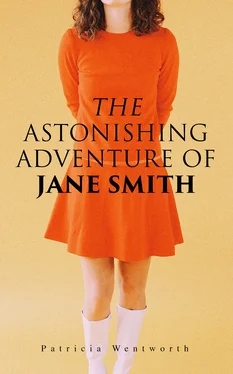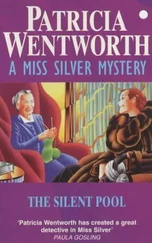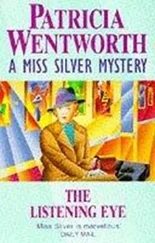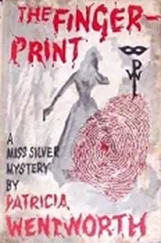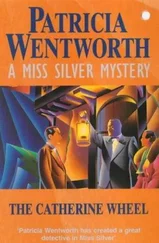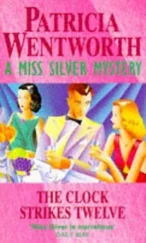Jane folded up the list and put it into her handbag. Two silver shillings and eleven copper pennies, and then the workhouse!
It was at this moment that a stout lady with a ginger-coloured pug sat heavily down upon the far end of Jane’s bench. The ginger-coloured pug was on a scarlet leather lead, and after seating herself the stout lady bent forward creaking, and lifted him to a place beside her.
Jane wondered vaguely why a red face and a tightly curled fringe should go with a passion for bugled bonnets and pugs.
“Was ’ums hungry?” said the stout lady.
The pug breathed stertorously, after the manner of pugs, and his mistress at once produced two paper bags from a beaded reticule. From one of them she took a macaroon, and from the other a sponge finger. The pug chose the macaroon.
“Precious,” cooed the stout lady, and all at once Jane felt entirely capable of theft and murder—theft from the stout lady, and murder upon the person of the ginger pug. For at the sight of food she realised how very, very hungry she was. Bread and margarine for breakfast six hours before, and the April air was keen, and Jane was young.
The pug spat out the last mouthful of macaroon, ignored the sponge finger, and snorted loudly.
“Oh, naughty, naughty,” said the stout lady. She half turned towards Jane.
“You really wouldn’t believe how clever he is,” she observed conversationally; “it’s a cream bun he’s asking for as plain as plain, and yesterday when I bought them for him, he teased and teased until I went back for macaroons; though, of course, a nice plain sponge finger is really better for him than either. I don’t need the vet. to tell me that. Come along, a naughty, tiresome precious then.” She lifted the pug down from the seat, put the paper bags tidily back into her reticule, rose ponderously to her feet, and walked away, trailing the scarlet lead and cooing to the ginger pug.
Jane watched her go.
“Why don’t I laugh?” she said. “Why doesn’t she amuse me? One needn’t lose one’s sense of humour even if one is down and out.”
It was at this unpropitious moment that the tall young man who had sat down unseen upon Jane’s other side, laid his hand upon hers and observed in stirring accents:
“Darling.”
Jane whisked round in an icy temper. Her greenish-hazel eyes looked through the young man in the direction of the north pole. He ought to have stiffened to an icicle then and there, instead of which he murmured, “Darling,” again, and then added—“but what’s the matter?” Jane stopped looking at him or through him. He had simply ceased to exist. She picked up her two shillings and her eleven pence, put them into her purse, and consigned her purse to her handbag. She then closed the handbag with a snap, and rose to her feet.
“Renata!” exclaimed the young man in tones of consternation.
Jane paused and allowed herself to observe him for the first time. She saw a young man with an intellectual forehead and studious brown eyes. He appeared to be hurt and surprised. She decided that this was not a would-be Lothario.
“I think you have made a mistake,” she said, and was about to pass on.
“But, Renata, Renata, darling!” stammered the young man even more desperately. Jane assumed what Cousin Louisa had once described as “that absurdly grand manner.” It was quite kind, but it induced the young man to believe that Jane was conversing with him from about the distance of the planet Saturn.
“I think,” she said, “that you must be taking me for my cousin, Renata Molloy.”
“But I’m engaged to her—no, I mean to you—oh, hang it all, Renata, what’s the sense of a silly joke like this?”
Jane looked at him keenly. “What is my cousin’s middle name?” she inquired.
“Jane. I hate it.”
“Thank you,” said Jane. “My name is Jane Renata Smith, and I am Renata Jane Molloy’s first cousin. Our mothers were twin sisters, and I have always understood that we were very much alike.”
“Alike!” gasped the young man. Words seemed to fail him.
Jane bowed slightly and began to walk away, but, before she had gone a dozen paces, he was beside her again.
“If you’re really Renata’s cousin, I want to talk to you—I must talk to you. Will you let me?”
Jane walked as far as the next seat, and sat down with resignation.
“I don’t even know your name.”
“It’s Todhunter—Arnold Todhunter.” He seemed a trifle breathless. “My sister Daphne was at school with Renata, and she came to stay with us once in the holidays. I said we were engaged, didn’t I? Only, nobody knows it. You won’t tell Mr. Molloy, will you?”
“I’ve never spoken to Mr. Molloy in my life,” said Jane. “There was a most awful row when my aunt married him, and none of us have ever met each other since. My aunt died years and years ago. I think Mr. Molloy is an Anarchist of some sort, isn’t he?”
“Yes, yes, yes,” said Mr. Todhunter, with violence. He banged the back of the iron seat with his hand. Jane reflected that he must be very much in love if he failed to notice how hard it was.
“Yes, yes, he is,” repeated Mr. Todhunter, “and worse; and Renata is in the most dreadful position. I must talk to somebody, or I shall go mad.”
“Well, you can talk to me,” said Jane soothingly. “I have always wanted to meet Renata, and I should love to hear all about her.”
Mr. Todhunter hesitated.
“Miss Smith—you did say Smith, didn’t you?—it’s so difficult to begin. You’ll probably think I’m mad, or trying it on, but it’s like this: I’ve just qualified as an engineer, and I’ve got a job in South America. Naturally I wanted to see Mr. Molloy. Renata wouldn’t let me. She hardly knows her father, and she’s most awfully scared of him. We used to meet in the Park. Then one day she didn’t come. She went on not coming, and I nearly went mad. At last I went to Molloy’s flat and asked to see her. They said she had left town, but it was a lie. Just before the door shut, I heard her voice.” Mr. Todhunter paused. “Look here, you won’t give any of this away, will you? You know, it’s awfully confusing for me, your being so like Renata. It makes my head go round.”
“Go on,” said Jane.
“Well, the bit I don’t want you to tell any one is this—I mean to say, it’s confidential, absolutely confidential: when I was at the Engineering School, I knew a chap who had got mixed up with Molloy’s lot. He didn’t get deep in, you’ll understand. They scared him, and he backed out. Well, I remembered a yarn he had told me. He was in Molloy’s flat one night, and it was raided. And I remembered that he said a lot of them got away down the fire-escape into a yard, and then out through some mews at the back. Well, I went and nosed about until I found that fire-escape, and I got up it, and I found Renata’s room and talked to her through the window. It’s not so dangerous as it sounds, because they lock her in the flat at night, and go out. And she’s in a frightful position—oh, Miss Smith, you simply have no idea of what a frightful position she’s in!”
“I might have, if you would tell me what it is,” said Jane dryly. She found Mr. Todhunter diffuse.
“Well, she’s a prisoner, to start with. They keep her locked in her room.”
“Who’s they?” interrupted Jane.
Mr. Todhunter rumpled his hair. “She doesn’t even know their names,” he said distractedly. His voice dropped to a whisper. “It’s the most appalling criminal organisation, Miss Smith. Molloy’s one of them, but they won’t even let Molloy see her alone now. You see, they think she overheard something. They don’t know whether she did or not. If they were sure that she did, they would kill her.”
Читать дальше
